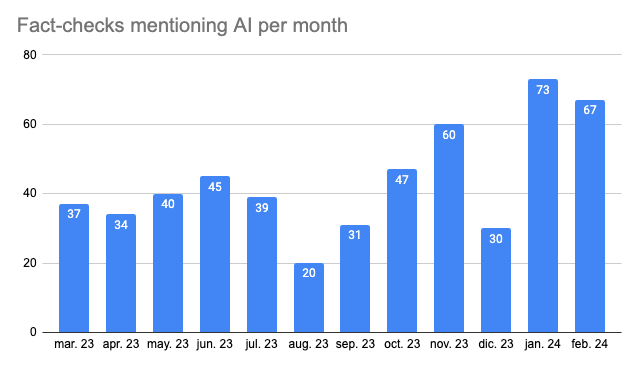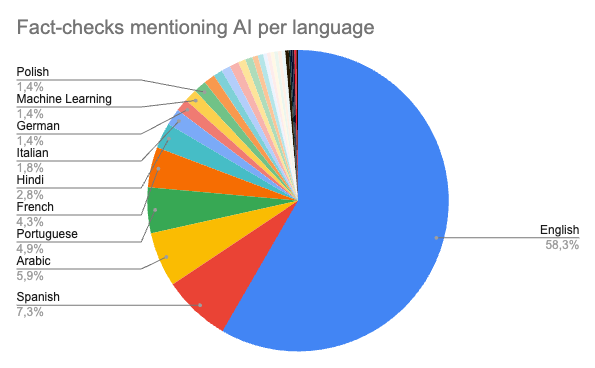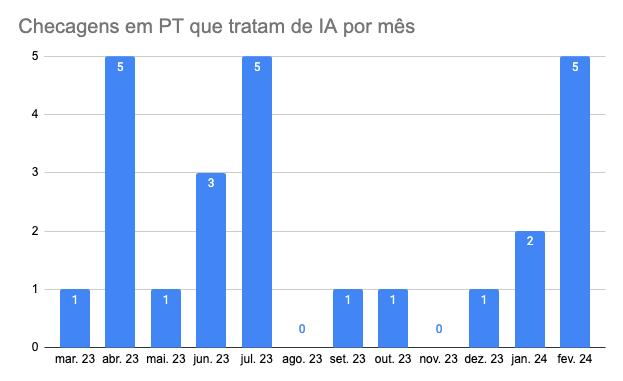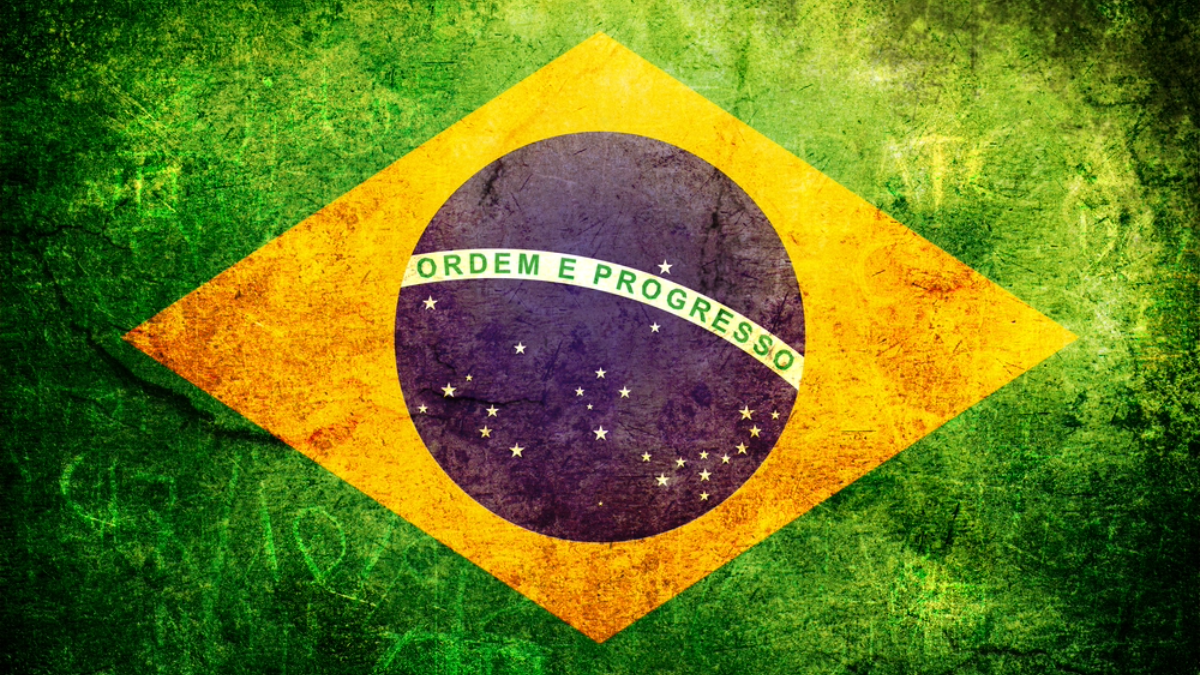New Analysis Reveals Scope of 'Fake News' Referencing or Produced by AI in Brazil; Little Related to Elections or Democracy, For Now
Cristina Tardáguila / Mar 18, 2024On February 28, Brazil’s Superior Electoral Court (TSE) unilaterally passed a resolution prohibiting deepfakes and establishing limits on the use of artificial intelligence in this year's municipal elections. While the move seems proactive and preempts potential dangers brought on by the spread of false AI-generated content by campaigns and politicians, the process by which the court reached its outcome in part challenges the norms of democracy.
Alexandre de Moraes, Minister of the Superior Electoral Court, introduced text to Congress but ultimately bypassed a Congressional vote in favor of moving the resolution forward solely through the judiciary. As is happening elsewhere in the world, the decision seemed prompted, in part, by panic for what’s to come and assumptions about the dangers of new AI tools during elections.
Per an analysis I conducted – originally published in Portuguese through Agencia Lupa – of AI-related fact-checks aggregated by Google over the past year, there is a clear rise in the number of Portuguese-language fact-checks related to AI. Yet, most AI-generated false or misleading content flagged during the research time period seemed banal, at least for now.
AI-generated content that went viral in Portuguese and was fact-checked between March 1, 2023, and February 28, 2024, mostly dealt with topics from outside of Brazil and pertained to issues of little relevance to past or present Brazilian elections.
Brazil’s case shows the fine line legislators and regulators are walking, between acting quickly to get ahead of potential dangers, and ensuring actions are rooted in evidence and being implemented through proper democratic channels that offer checks and balances.
The volume and language of AI-related fact-checks
In the weeks that followed the TSE’s AI mandate, I dug into Google's API to understand the size and scope of the problem the Court is trying to address.
Since 2019, Google’s Fact Check Tool API has gathered fact-checks the company considers to be produced by professional fact-checking organizations. The tool offers insights for the company’s products and services teams as well as to researchers studying disinformation.
Between March 1, 2023, and February 28, 2024, 509 professional fact-checks were published and indexed by Google mentioning the expressions "artificial intelligence" or "deep fake" in their respective translations into the ten most spoken languages in the world (English, Mandarin, Spanish, Hindi, French, Arabic, Bengali, Russian, Portuguese, and Urdu).
This means that, over the course of one year, an average of 42 fact-checks were published per month pointing out falsehoods, exaggerations, or technologically-created distortions—or simply discussing cases directly related to the topic of artificial intelligence. And this number is on the rise.
Looking only at the first two months of 2024, data from Google's API showed that the average number of fact-checks signaling lies fabricated by AI or addressing the topic in a generic manner had risen to 70 per month, a 62% increase from 2023.

"Deepfakes" and pieces fabricated by AI were the subject of fact-checks published and indexed by Google in 30 languages during the period I analyzed. English, Spanish, and Arabic stood out, in that order, as leaders. Portuguese, which is only the ninth most spoken language on the planet, appeared in fourth place.

A dive into the Portuguese data
In the 12-month period analyzed, fact-checkers working in Portuguese published 25 articles pointing out technologically fabricated falsehoods or simply mentioning AI in their texts. The upward trend observed across all languages between December 2023 and February 2024 also occurs in the Portuguese language.
If the monthly average of AI-related fact-checks from last year did not reach 2 (it was 1.8) in the first two months of this year, it jumped to 3.5 articles every 30 days. There are several reasons for this growth, the main one being the undeniable popularization of the subject.

Nine media organizations published at least one fact-check on artificial intelligence during the analyzed period. Seven of them are Brazilian (Lupa, Aos Fatos, Boatos.org, AFP Checamos, Estadão Verifica, e-Farsas, and UOL) and two are Portuguese (Observador and Polígrafo). Of the nine, seven are signatories and follow the International Fact-Checking Network (IFCN) Code of Ethics.
What's the scenario in Brazil?
Excluding content flagged by Portuguese fact-checkers, a total of 19 articles indicating controversial use of AI or mentioning this subject were published in Portuguese over the course of a year. And, in this universe, it is noteworthy that six of these fact-checks – that is, almost a third – came to light in 2024, confirming the upward trend.
However, the most relevant data comes from the content analysis. None of the fact-checks deal with photos, videos, or audio related to national politics or politicians. No party or coalition is mentioned in the disinformative pieces fabricated by AI. The only piece of content mentioning the election does not deal with manipulated content. It only shows that the founder of the World Economic Forum, Klaus Schwab, did not advocate for artificial intelligence to replace electoral processes. The fact-check proves that Schwab's statements were edited and taken out of context.
Overall, there is no evidence that AI was used against the Brazilian Judiciary or the Legislative branch. The word "government," whether referring to any form of governance, appears in three fact-checks mentioning AI.
One fact-check, conducted by Lupa (the organization I founded), alerts to a manipulated video featuring television presenter Luciano Huck. The recording includes audio that was never recorded by Huck to perpetrate the 'Forgotten Withdrawal' scam. This audio was artificially generated, and the link accompanying this material does not refer to a government website (such as gov.br) but rather to a suspicious domain.
The other two fact-checks with the word "government" also do not show manipulated content. They only address the subject of artificial intelligence. They point out that it is false information that the World Economic Forum ordered governments around the planet to rewrite the Bible by AI (here and here).

Caption: Word cloud made from the material (sentences, videos, audios, etc.) that was verified and appears in the Fact Check Tool API.
In the realm of falsehoods fabricated by AI and identified in Portuguese, no significant or impactful ones were detected—nothing that was capable, for example, of changing the course of a public policy. In the sea of trivialities, there is a "demonic park" produced by artificial intelligence, a false photo of Australian activist Julian Assange imprisoned, and the alleged launch of an "artificial woman" in China.
Data extracted from Google's API also indicate that artificially generated content that goes viral in Portuguese mostly deals—with few exceptions—with topics from outside the country and of low relevance.
Authors

